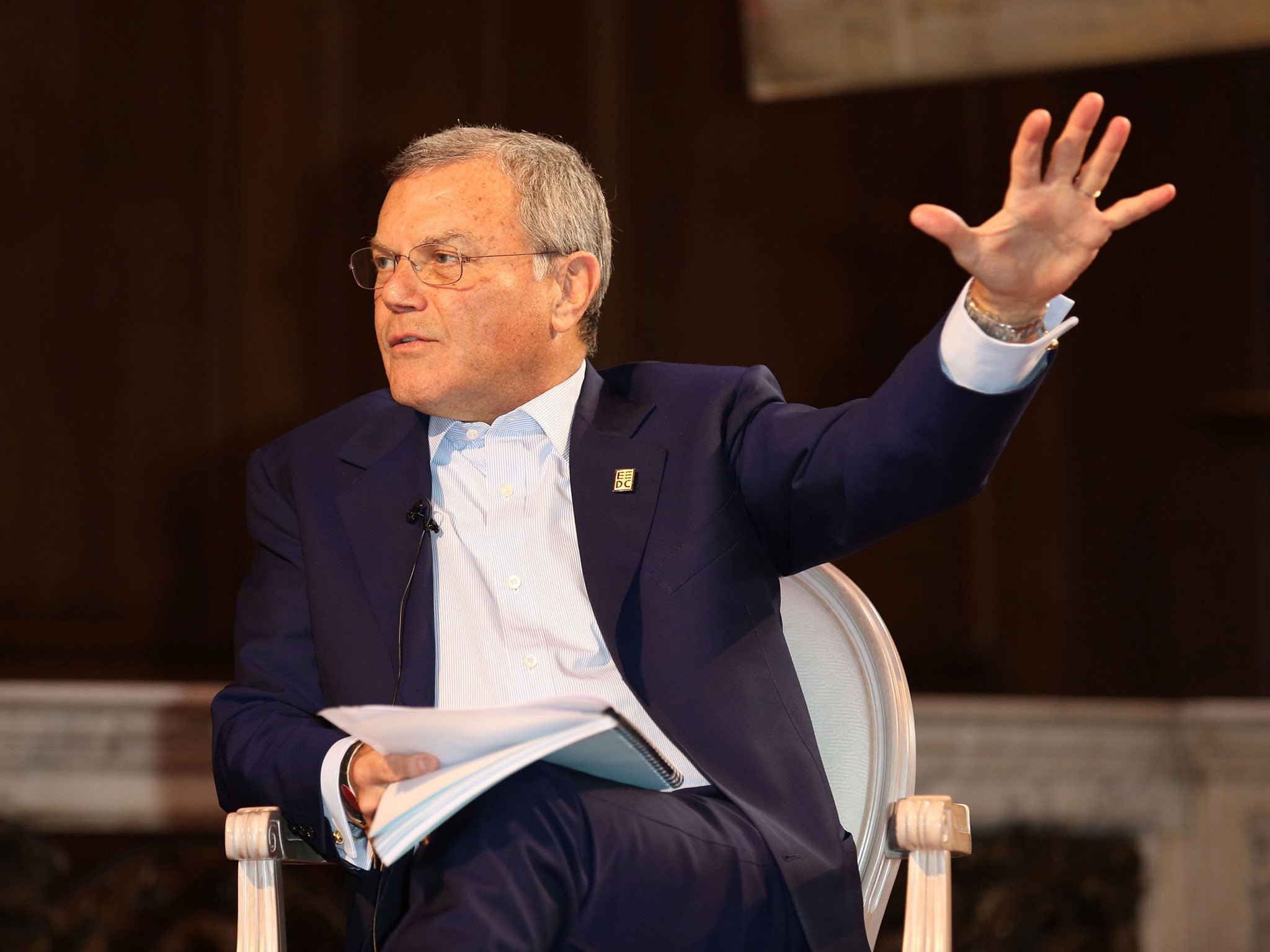Pay inequality: Salary gap between average wages and those of top executives 'widening each year'
'Inequality is reaching stratospheric levels'

The gap between average wages and the pay Britain’s top company executives receive is still widening year by year, despite David Cameron’s mantra that “we’re all in this together.”
New research shows that remuneration at the very top rose by 8.1 per cent, with at least 535 company executives now receiving £1m a year or more.
The highest paid was Sir Martin Sorrell, chief executive of the advertising and PR group WPP, whose latest £43m remuneration package included £274,000 worth of flights paid for so that his wife could accompany him on business trips, plus £50,000 he is reckoned to save the company on hotel bills by staying in his New York flat and other homes during business trips.
Sir Martin weathered a shareholders’ revolt at WPP’s annual meeting in June, when 20 per cent voted against his pay package – which was actually an improvement on previous years. In 2014, 30 per cent voted against his pay packet, which was £30m that year. Sir Martin has said that his pay should not be directly compared with that of other city bosses, because he built his company from scratch.
Sir Martin decided earlier this year that he would pay for his wife’s trips himself, so that item will not appear when WPP’s 2015 company report is published.
One other executive had a pay packet of more than £20m. Tony Pidgley, founder of the house builder Berkeley, benefited from a long-term bonus scheme introduced after the financial crisis, in 2009, which entitled him to £19.8m in share options on top of his basic salary of £850,000 a year plus other benefits.
The Labour Research Department, a trade-union-backed think-tank not connected to the Labour Party, surveyed company reports published by the top 350 companies ranked on the London Stock Exchange, which publish an audited figure for the remuneration of each director.
Listing them by the size of pay packet, they discovered that the director at the mid-point of the list was being paid £2.04m, a slight increase on the previous year. At least 52 executives had seen their pay packets more than double in a single year. The average increase of 8.1 per cent was less than the previous year, when the LRD calculated that it was 9.2 per cent.
According to official figures, the rise in weekly earnings from September 2014 has ranged between 1.1 per and 3.1 per cent.
The widening pay gap was condemned by the TUC general secretary, Frances O’Grady, who said: “With top bosses now earning 183 times more than the average full-time worker, inequality is reaching stratospheric levels. After years of falling living standards it is a disgrace that top execs are taking an even bigger share of the rewards of growth. We need a recovery that works for the many and not just the few.”
The top 20 earners at the biggest companies listed on the London Stock Exchange last year were:
1 Sir Martin Sorrell (WPP), £42.978m
2 Tony Pidgley (Berkeley), £23.296m
3 Ben van Beurden (Royal Dutch Shell), £19.510m
4 Jeremy Darroch (Sky), £16.889m
5 Erik Engstrom (RELX Group), £16.176m
6 Peter Long (TUI Travel), £13.333m
7 Rob Perrins (Berkeley), £12.357m
8 Tidjane Thiam (Prudential), £11.834m
9 Breon Corcoran (Betfair), £11,627m
10 Antonio Horta-Osorio, (Lloyds Banking Group), £11.544m
11 Mike Wells (Prudential), £11.393m
12 Rakesh Kapoor (Reckitt Benckiser), £11.237m
13 Paul Richardson (WPP), £11.219m
14 Christopher Silva (Allied Minds), £9.658m
15 Bob Dudley (BP), £9.289m
16 Andrew Griffith (Sky), £8.861m
17 Johan Lundgren (TUI Travel), £8.423m
18 Simon Borrows (3i), £8.278m
19 Michael Dobson (Schroders), £8.155m
20 Hendrik du Toit (Investec), £8.130m
Source: Analysis of company reMUNeration reports by the Labour Research Department
Subscribe to Independent Premium to bookmark this article
Want to bookmark your favourite articles and stories to read or reference later? Start your Independent Premium subscription today.

Join our commenting forum
Join thought-provoking conversations, follow other Independent readers and see their replies